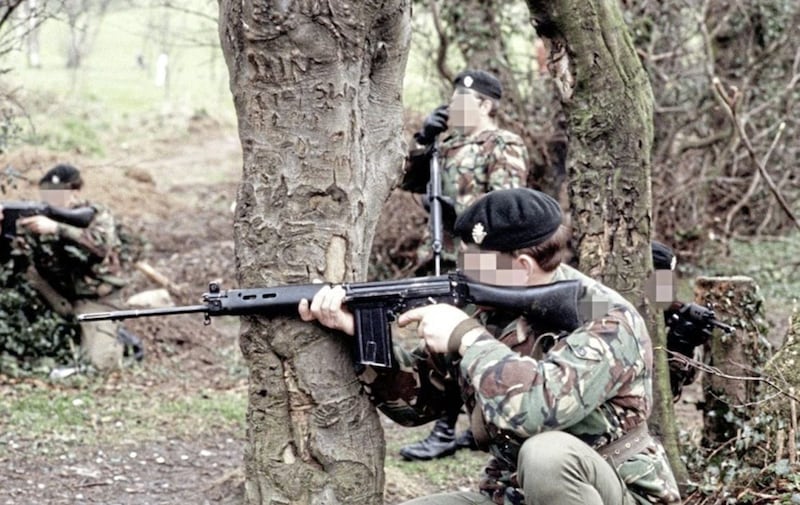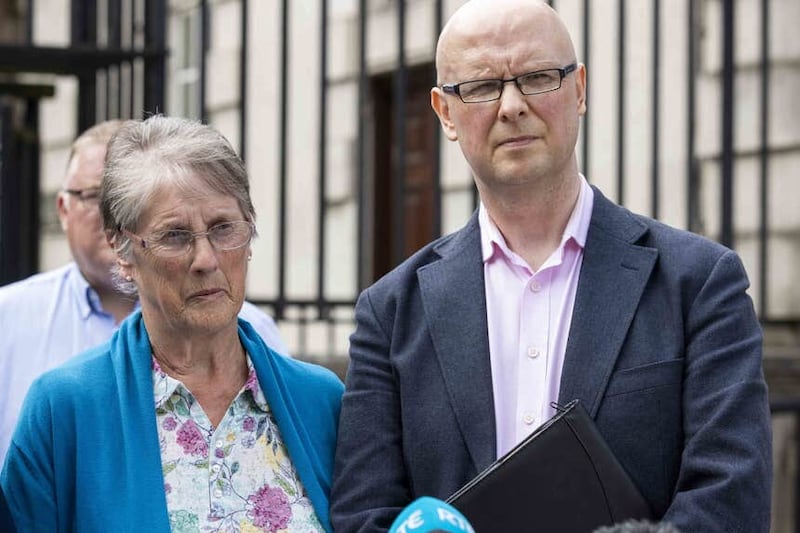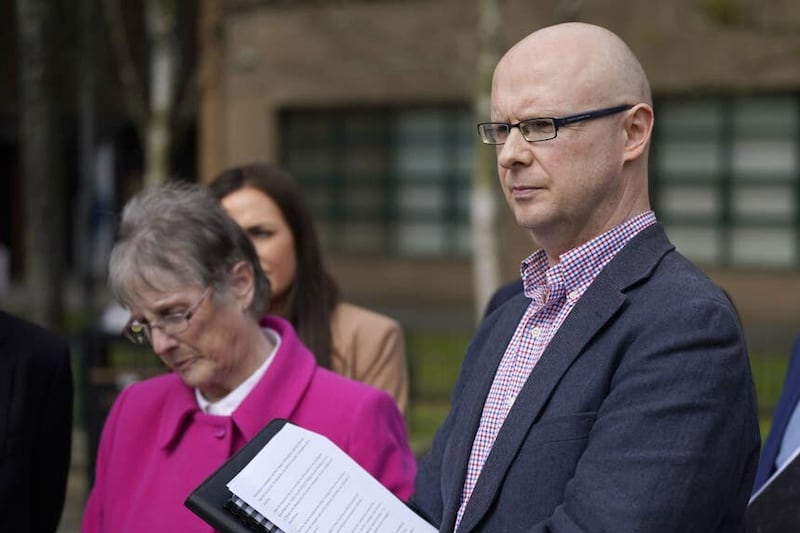The Attorney General has ordered a fresh inquest into the murder of Patsy Kelly in Co Tyrone almost 50 years ago.
A member of Omagh District Council, Mr Kelly is thought to have been killed as he returned home from work at a bar in Trillick, Co Tyrone, in July 1974.
His remains were weighed down before being dumped in Lough Eyes in Co Fermanagh and were recovered three weeks later when they floated to the surface.
It was later found he had been shot six times.
A damning Police Ombudsman report into the circumstances of his death was published last month and his family subsequently called for a new inquest and launched legal action.
Read More:
[ Patsy Kelly's family call for inquest into killing collusionOpens in new window ]
Attorney General Brenda King had previously rejected calls for a fresh inquest but this decision was reversed on Thursday, days after a judicial review hearing was held in Belfast.

The Kelly family, and many in the local community, have long suspected the involvement of UDR members in the murder.
While no-one has been convicted, several former members of the UDR have been arrested and questioned.
Ex-DUP assembly member and UDR man Oliver Gibson, who died in 2018, aged 83, was under suspicion of involvement within hours of the killing but was never charged.

Police Ombudsman Marie Anderson found “collusive behaviour” among some police officers in the murder and said there was a series of "significant" investigative failings in the case.
These included a failure to verify UDR alibies, forensic failings, ‘latent’ investigative bias and no dissemination of intelligence.
She revealed that RUC Special Branch and a senior officer in the area were aware of “significant intelligence” that a UVF unit was active in Fermanagh at the time of the murder.
A number of its members were “either directly linked to Mr Kelly’s murder and other terrorist attacks”.
The ombudsman also revealed that a number of security force members, including police officers, “were also linked to this unit and its activities”.
Mr Kelly's son Patsy welcomed the decision to hold a new inquest.
"We absolutely welcome the decision and it's up to the coroner to timetable the inquest now and that's the next step and we will be hoping that will happen immediately," he said.
"In 1975 an open verdict was delivered because not all of the full picture of information, in terms of evidential leads and so forth, was not submitted to the original inquest so we look forward to a full inquest being heard with all of the relevant information being delivered to it."
Mr Kelly raised fresh concerns about the British government's controversial Legacy Bill, which includes proposal to end inquests that are not at findings or verdict stage by next May.
"Every family in a similar position to ours is under the shadow of the legacy bill," he said.
"Nobody in the north and nobody in Ireland or elsewhere believes that the Legacy Bill is fit for purpose and apart from being designed to provide immunity to its military and police, the Legacy Bill is specifically designed to cause as much pain and as much hurt to families, like ours, who have had the audacity to seek truth and justice for the murder of their loved ones,"
The family's solicitor Adrian O'Kane, of Patrick Fahy and Co Solicitors, said: "Factored into the Attorney General’s decision is the finding of the Police Ombudsman, Marie Anderson, who concluded that Mr Kelly’s family had been failed by police in the course of collusive behaviour.
"We shall immediately ask the presiding coroner to timetable the Inquest for hearing.
"The opportunity now is real for the truth about Patsy Kelly’s murder to be delivered as evidence in court."
Sinn Féin MP Órfhlaith Begley said: “Today’s decision is testament to the Kelly family who have campaigned for almost five decades with courage and determination to uncover the truth."








